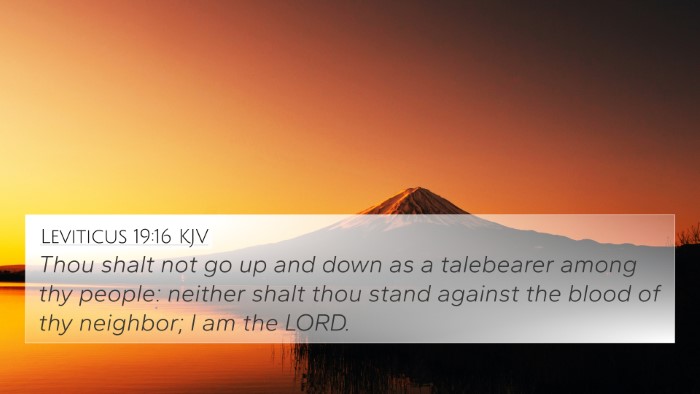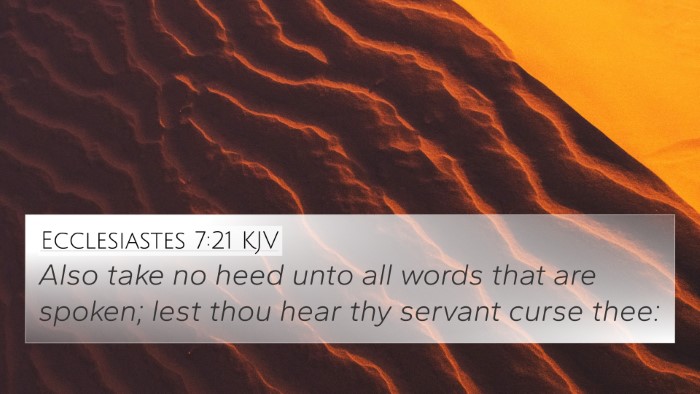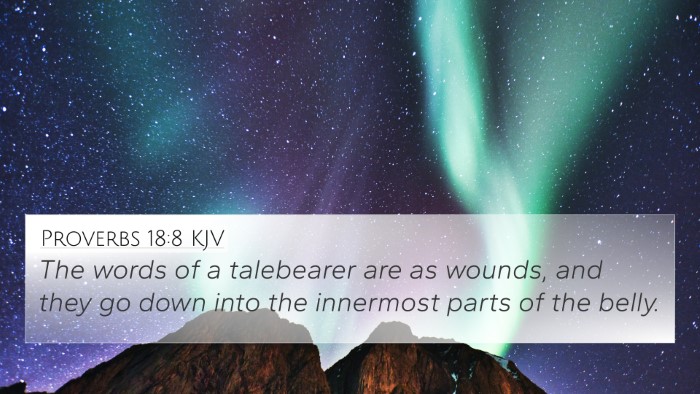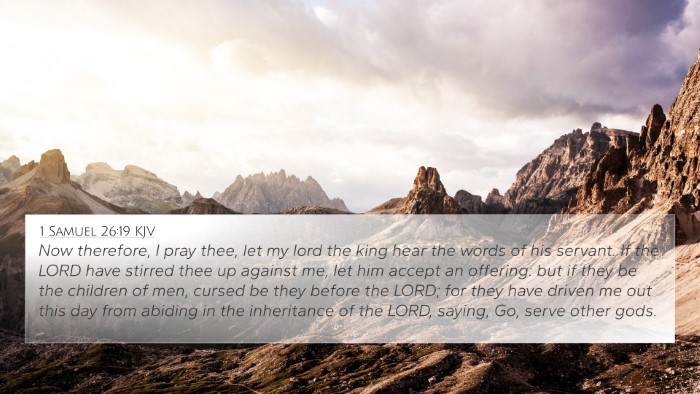Bible Verse: 1 Samuel 24:9
In this verse, David speaks to Saul after a significant moment in the cave at En Gedi, where he had the chance to harm Saul but chose to spare him. This encounter is not only pivotal in their relationship but also deeply rooted in the themes of mercy, respect for authority, and divine providence.
Understanding the Meaning of 1 Samuel 24:9
This passage illustrates David's internal struggle and moral fortitude. By saving Saul's life, David demonstrates a profound respect for God's anointed leader, even when that leader sought David's life. This moment emphasizes the belief in divine timing and the importance of not taking vengeance into one’s own hands.
Commentary Insights
- Matthew Henry: In his commentary, Henry highlights that David’s words reflect humility and restraint. He acknowledges that while Saul may have wronged him, his actions are governed by a higher authority. David understands that he must not act against Saul because Saul is still God’s chosen king.
- Albert Barnes: Barnes expresses how David’s choice to confront Saul instead of attacking him is emblematic of his character. It shows a deeper understanding of justice—choosing mercy over revenge. This action underlines David’s trust in God to handle the situation instead of taking matters into his own hands.
- Adam Clarke: Clarke interprets this verse through the lens of David's integrity. He believes David is teaching a lesson about the importance of maintaining one’s principles and respecting God's judgment over human conflicts. Clarke also emphasizes the significance of David's use of reason and morality when confronting Saul.
Key Themes in 1 Samuel 24:9
- Respect for God's Anointed: David acknowledges Saul's position and authority, honoring the role despite the personal conflict.
- Mercy over Vengeance: This encounter underscores the vital lesson that mercy is often a strength in the face of hostility.
- Trust in Divine Timing: David’s decision reflects a belief that God will ultimately deliver justice in His own time.
Bible Verse Cross-References
- Romans 12:19: "Vengeance is mine; I will repay, saith the Lord." This verse highlights the principle that God brings about justice, reinforcing the same message found in David's decision.
- Proverbs 25:21-22: "If your enemy is hungry, give him bread to eat; and if he is thirsty, give him water to drink." These verses echo David's act of kindness towards Saul.
- Luke 6:27-28: Jesus teaches about loving enemies, adding depth to the principle of mercy that David embodies.
- 1 Peter 2:23: "Who, when he was reviled, reviled not again; when he suffered, he threatened not; but committed himself to him that judgeth righteously." This verse reflects the same spirit of non-retaliation demonstrated by David.
- Matthew 5:44: "But I say unto you, Love your enemies, bless them that curse you..." linking to the themes of love and mercy found in David's actions.
- 1 Samuel 26:9-11: This recounts another instance where David spares Saul's life, reinforcing the consistency of his respect for God’s anointed.
- Psalm 37:1-3: These verses reflect on the futility of fretting over evildoers, aligning with David's trust in God's justice.
- Exodus 22:2: Addresses the principle of self-defense, while David’s refusal to harm Saul presents a different approach—choosing grace over law.
- Matthew 26:52: "For all they that take the sword shall perish with the sword," paralleling the choices between violence and mercy made by David.
- 2 Samuel 1:14-16: This narrative touches on David’s actions and words regarding Saul’s death, emphasizing his respect for Saul even after his demise.
Connecting Themes Across Scriptures
1 Samuel 24:9 is a rich verse interwoven with themes of mercy, authority, and trust in God, which are found throughout the Bible. By evaluating these connections, one can gain profound insight into the overarching narrative of God's justice and human relationships within scripture.
Using Tools for Bible Cross-Referencing
To explore more connections like those seen in 1 Samuel 24:9, utilizing tools for Bible cross-referencing can enhance your understanding. Resources like a Bible concordance or a cross-reference Bible study guide can help in identifying these crucial links within the texts.















